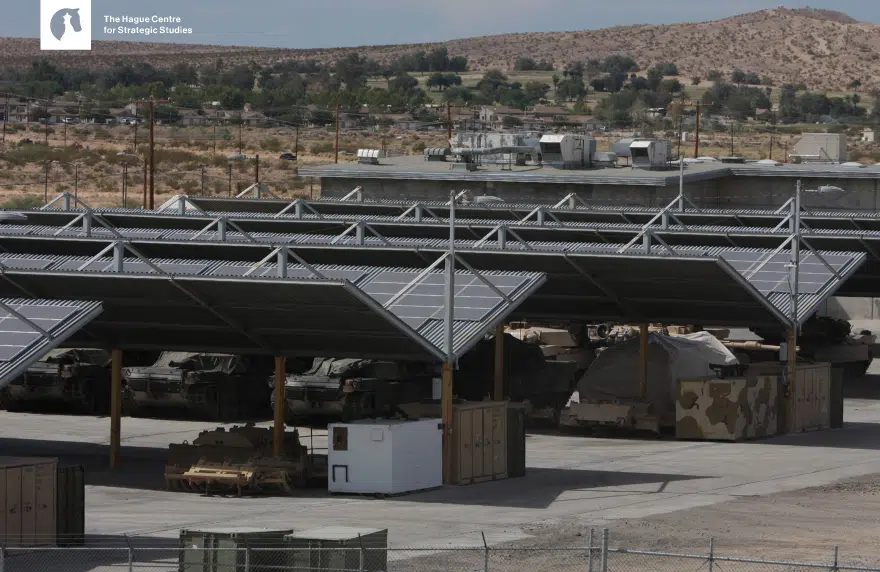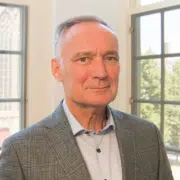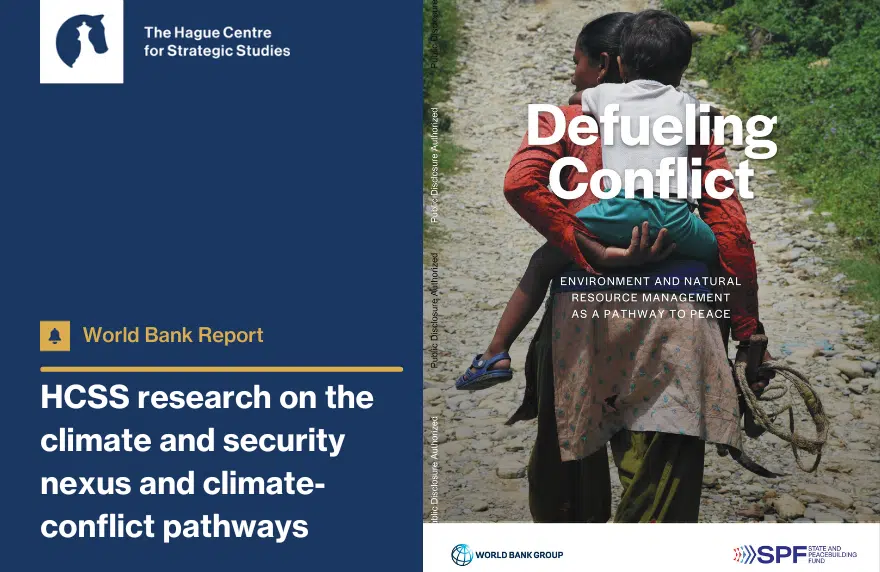Klimaatbestendigheid van een krijgsmacht is niet langer een positief neveneffect, maar een voorwaarde om slagvaardig te zijn tijdens operaties. Dat maakt hernieuwbare energiezekerheid een prioriteit voor de NAVO en de Europese Unie, dat concludeert The Hague Centre for Strategic Studies (HCSS) in een nieuw rapport. Behalve dat defensie het nodige vastgoed in handen heeft dat moet worden verduurzaamd, zijn operationele legereenheden minder kwetsbaar als ze zelfvoorzienend zijn in hun energie.
Nu de NAVO- en Europese defensiebudgetten flink zijn verhoogd sinds de oorlog in Oekraïne is het verstandig om het leger van de toekomst ook klimaatbestendig te maken, zo concludeert HCSS. Daarbij biedt het advies- en onderzoeksbureau verschillende technieken om ervoor te zorgen dat legers hun ecologische en logistieke voetafdruk verkleinen.
Volgens HCSS moet het klimaatveiligheidsdebat verschuiven naar het besef dat klimaatgerelateerde mitigatie- en aanpassingsmaatregelen in het leger urgent en onvermijdelijk zijn en dat bestaande innovatieve groene technologieën de Europese strijdkrachten belangrijke operationele voordelen kunnen opleveren.
Daarbij zijn massale investeringen in operaties en organisatie noodzakelijk om legers klimaatbestendig te maken zonder dat hun slagkracht verliezen. Ten slotte stelt HCSS dat militaire aanbestedingsprocedures en trainingen zich ook meer op klimaatthematiek moeten richten.
Dit alles is noodzakelijk omdat veel militaire conflicten hun oorsprong kennen in klimaatverandering. Denk aan migratie die tot spanningen leidt na lang wordende perioden van droogte, veel van de Nederlandse militaire acties in Afghanistan concentreerden zich rond watermanagement. Daarbij bieden elektrische legervoertuigen strategische voordelen op omdat ze minder goed te horen zijn.
Auteurs: Irina Patrahau, Laura Birkman, Michel Rademaker, Tom Middendorp en Ella MacLaughlin; met bijdrages van Richard Nugee, Sharon Burke, Richard Brewin en Eric Engelbrecht.










